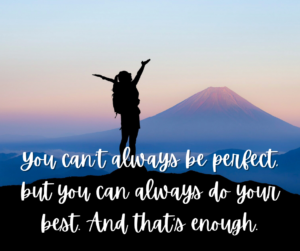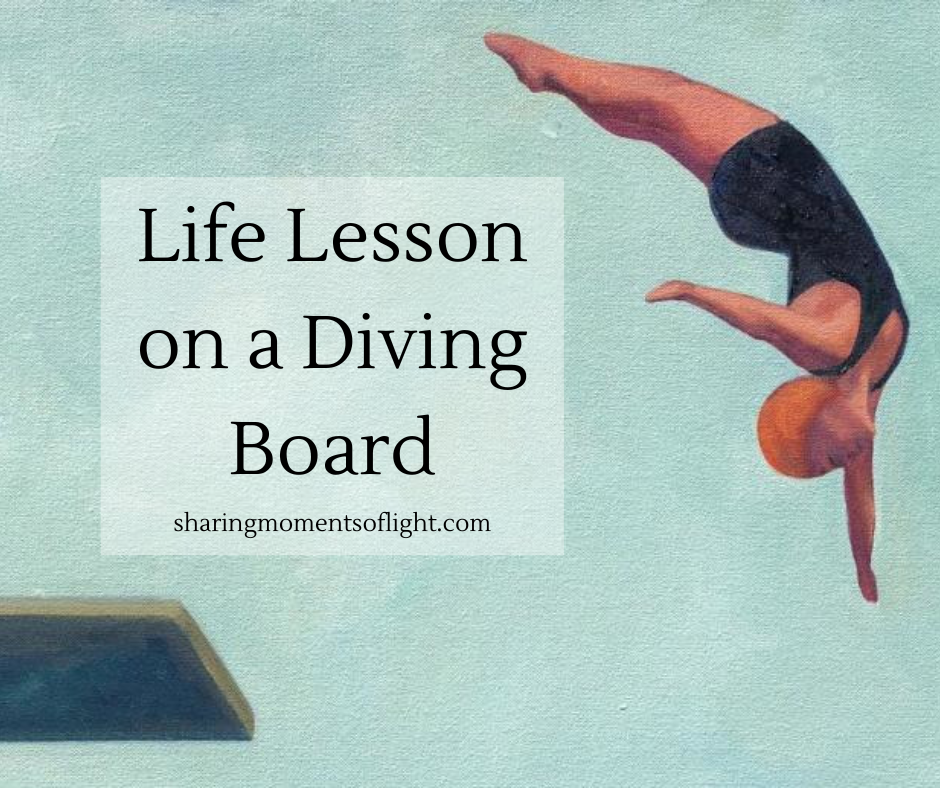Why are we so demanding of ourselves? Why do we succumb to others’ seemingly impossible demands? Have you ever felt like you’ll never get everything done? Have you ever felt like no matter how hard you try it is never good enough? Have you ever said to yourself, “I can’t do that!”? Have you ever asked yourself how to become the best person you can? Do you ever have the feeling that no matter what you do, you’ll fall short?
For quite some time, questions like these had the potential to ruin my day. There must be an acceptable, healthy answer. Clearly, we need to perform the best way possible to us. However, undue amounts of stress and anxiety can cause all sorts of psychological, emotional, and health problems. How do we reconcile these needs? Drawing purely on reason and experience, it is my intent to offer an overview of things that have worked for me.
Perfect
Growing up, perfectionism was a frequent part of my life, imposed by someone other than myself. The insatiable compulsion to perform at any level short of perfect still haunts me. This time, it is self-inflicted. To get past this problem, there is one fact of reality which we must absolutely, unconditionally accept. Perfectionism is truly a self-fulfilling prophecy. Ironically, it is practically an oxymoron.
Perfectionism virtually guarantees failure. Over time, we become conditioned to expect failure. This may be part of the anticipatory anxiety we feel when under heavy pressure to execute something with uncompromising perfection. If you take nothing else away from this article, take this: Perfectionism virtually guarantees failure, or at very least, disappointment.
Once that truly sinks into our perception of how the Universe works, it is possible to graduate to the next concept: Not everything we do will turn out exactly as we want or as someone else wants. In reality, most things will not turn out exactly as we would want them to. The hard part is that this must be ok with us. Do not misunderstand. Setting a high bar pushes us to excel. Setting it at the highest possible mark from the outset will virtually always end badly. It may not turn out perfectly, and that’s ok.
Reasonable
When those two concepts become part of the way we think, we can readjust our expectations. How do we know how high to aim? Again, drawing on intuition and experience, a healthy approach is to start with an inventory. Ask yourself, “What resources do I have at my disposal to perform this task?” Obvious answers might include one or more or the following:
- My computer
- Google (for research, etc.)
- Paper and pen for taking notes
- The proper tools to get the job done
- The knowledge of how to do the project
Yes, those are fine answers. But we want to do our best, right? Let’s think outside the box a little. What about resources like these?
- The closest library
- Someone who has successfully done what you are trying to do
- Your own intuition and reasoning mind
- Taking personal ownership and responsibility for the project
- Anything you have ever done successfully that resembles any step of the project
You see that I mention your own intuition and reasoning mind. Use your head to come up with inventive, creative, and out-of-the-box solutions. Brainstorm solutions, and go crazy with it. Don’t discount any idea. When you’re done, make sure that a possibility will absolutely in no way work before you discard it.
Own It
Another enabling force is to take personal interest in the completion of the project. If you don’t know something about part of it, ask whoever does. If you don’t have a needed tool or needed materials, find someone who does. Step up, make it yours, and if appropriate, emotionally invest yourself to a degree in doing your best.
Other people often become a valuable resource for gaining knowledge quickly. Just don’t abuse that resource. Do detailed research on the parts of the project that you do not fully grasp. Google and the library come into play here. Own the knowledge and understanding of your project.
Conclusion
Take things that you have done that are similar to parts of this project. Evaluate whether they can be adapted to become part of the solution. The journey of a thousand miles begins with the first step. Having sunscreen, nice cross-training shoes, some sunglasses, and a pair of shorts will make it much more enjoyable. But in the absence of any of those things, it is still possible. In the end, it comes down to this: Do the best you can now with what you have now. It doesn’t have to be perfect. Cut yourself some slack. Do what you can and feel good about that.




